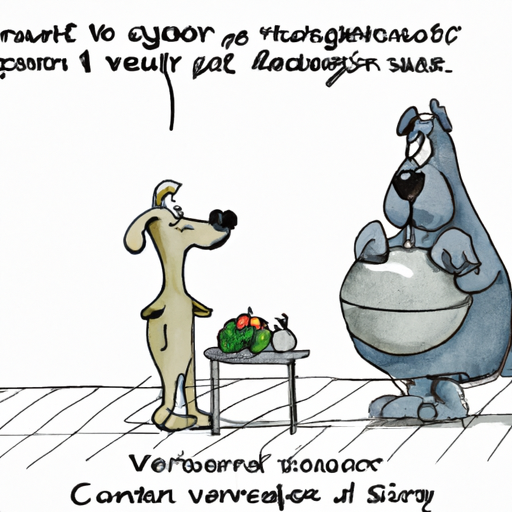Understanding Why Dogs Get Gas
Firstly, it’s important to understand why dogs get gas. The primary reason is diet. Just like humans, dogs can suffer from dietary intolerance and allergies, which can lead to excessive gas. Ingredients such as lactose, soy, peas, beans, and high-fat foods can cause gas in dogs.
Secondly, dogs can swallow air when they eat too quickly, leading to bloating and gas. Also, certain breeds are more prone to gas than others, especially those with short noses like Bulldogs and Boxers.
Lastly, some health issues can cause gas in dogs. These include irritable bowel syndrome, pancreatitis, and intestinal parasites.
1. Adjusting Your Dog’s Diet
One of the most effective ways to reduce gas in dogs is to adjust their diet. Here are some steps you can take:
-
Decrease the amount of gas-producing foods: Avoid feeding your dog foods that are known to produce gas. This includes beans, peas, dairy products, and high-fat foods.
-
Introduce a high-quality, easily digestible diet: Feed your dog a diet that is high in protein and low in fat. Avoid diets that have a lot of fillers and artificial ingredients.
-
Consider a hypoallergenic diet: If your dog has a food allergy or intolerance, a hypoallergenic diet may help.
-
Add probiotics to your dog’s diet: Probiotics can help to balance the gut bacteria, which can reduce gas.
| Food Type | Effect |
|---|---|
| Beans, peas | Can produce gas |
| Dairy products | Can produce gas |
| High-fat foods | Can produce gas |
| High protein, low-fat diet | Can reduce gas |
| Hypoallergenic diet | Can reduce gas |
| Probiotics | Can reduce gas |
2. Slow Down Your Dog’s Eating
Another way to reduce gas in dogs is to slow down their eating. Dogs that eat quickly often swallow a lot of air, which can lead to gas. Here are some tips:
-
Use a slow-feed bowl: These bowls have ridges or other obstacles that force your dog to eat more slowly.
-
Spread out meals throughout the day: Feeding your dog smaller meals more frequently can reduce the amount of air swallowed.
-
Encourage your dog to take breaks during meals: This can help your dog to eat more slowly and swallow less air.
3. Regular Exercise
Regular exercise can also help to reduce gas in dogs. Exercise helps to stimulate the digestive system, which can help to move gas through the digestive tract more quickly. Here are some exercise tips:
-
Take your dog for regular walks: This can help to stimulate digestion and reduce gas.
-
Play with your dog: Games like fetch or tug-of-war can provide good exercise and help to reduce gas.
-
Provide mental stimulation: Mental exercise can also help to reduce gas. This can include puzzle toys or training sessions.
4. Regular Vet Check-ups
Regular vet check-ups are crucial to ensure that your dog’s gas isn’t a symptom of a more serious health issue. Your vet can provide a thorough examination and potentially suggest further tests or treatments if necessary.
5. Over-the-Counter Solutions
Over-the-counter solutions can also help to reduce gas in dogs. These can include products that contain simethicone, a drug that helps to break up gas bubbles. Always consult your vet before giving your dog any new medication.
Frequently Asked Questions
Q: Can certain breeds be more prone to gas?
A: Yes, breeds with short noses like Bulldogs and Boxers are more prone to swallowing air when they eat, which can lead to gas.
Q: Can I give my dog human medication for gas?
A: While some human medications can be safe for dogs, it’s always best to consult your vet before giving your dog any new medication.
Q: Can gas in dogs be a sign of a more serious health issue?
A: Yes, excessive gas can be a sign of a variety of health issues, including irritable bowel syndrome, pancreatitis, and intestinal parasites. If your dog has persistent gas, it’s best to consult your vet.
Q: Can exercise reduce gas in dogs?
A: Yes, regular exercise can help to stimulate the digestive system, which can help to move gas through the digestive tract more quickly.
Q: Can a change in diet help to reduce gas in dogs?
A: Yes, a diet that is high in protein and low in fat, as well as free from gas-producing foods, can help to reduce gas in dogs.



